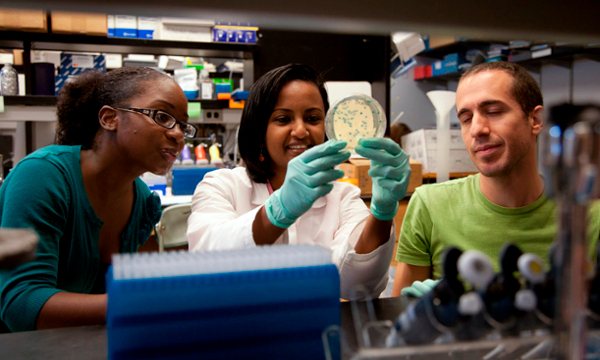Bacteriology Research
The MMG Program provides a multidisciplinary environment for studies in bacteriology with a central focus on molecular mechanisms of pathogenesis and antibiotic resistance. Specific areas of research include;
- mechanisms of virulence and intracellular survival of Francisella tularensis
- regulation of virulence gene expression and mechanisms of antibiotic resistance in Acinetobacter baumannii
- structural analysis of aminoglycoside resistance mechanisms
- influence of the microbiota on intestinal immunity and health
- structural mechanisms of translation
- role of efflux pumps in resistance and virulence in Neisseria gonnorhoeae
- mechanisms of intracellular survival in Mycobacterium tuberculosis
- role of surface polysaccharides in Pseudomonas aeruginosa virulence
- antimicrobial peptide resistance and regulation of sporulation in Clostridioides difficile
- lipoprotein trafficking to the outer membrane
- mechanisms of host evasion by Streptococcus pyogenes
- Neisseria meningitidis pathogenesis
- bioinformatic approaches to understand the evolution of virulence
- natural product inhibitors of bacterial pathogenesis
- the regulation of gene expression in Bacillus subtilis, Proteus mirabilis and Escherichia coli
The MMG bacteriology program includes investigators from various Departments at Emory, including Microbiology and Immunology, the Division of Infectious Diseases, Biology, Chemistry and Experimental Pathology. MMG faculty members are based at Emory University, the Emory Vaccine Center, the US Centers for Disease Control (CDC) and the Atlanta VA Medical Center. The bacteriology program provides a highly collaborative environment in which students can excel.





